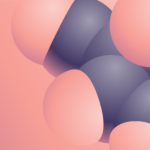Hand disinfectants in our fight against COVID-19, but are they now cosmetic products or biocides?
The WHO recommends washing your hands with soap and water for at least 20 seconds or cleaning your hands with alcohol-based solutions, gels being one of the main types.
A Rapidly Growing Hand Disinfectants Market
Many companies, going from the traditional players to breweries and distilleries, have seen an opportunity in making hand disinfectants available on the market, and converting their production capacity to address EU’s shortage in hand disinfectants. The European Commission reports to have seen a steep increase in the submission of Cosmetic Product Notifications under the Cosmetics Regulation, but is this the correct legal framework for hand disinfectants?
In fact, depending on the claims made, composition and purpose of use, the Biocidal Product Regulation (BPR) might apply. As clear guidance is needed on the applicable legislation, a few rules of thumb are addressed in this story.
- Products with a main or exclusive cosmetic purpose (i.e. cleaning the skin or perfumes) are covered by the Cosmetics Regulation. Claims associated to a cosmetics purpose are for example “physically clean” or “hand cleaner”.
- Products containing an Active Substance (such as ethanol) and supplied with a primary biocidal purpose, i.e. intended to control harmful organisms, fall within the scope of the biocides legislation. Examples are products making a claim such as: “disinfecting”, “kill viruses”, “anti-bacterial”, “hygienically clean” etc., which are clearly beyond the general perception of personal hygiene.
- Products with a high concentration of ethanol (or other alcohol) are known to have a biocidal function. When those products are applied or marketed as similar biocidal products, they will also be considered a biocidal product, whether or not a claim has been made.
What does this now mean for your company?
In case your hand disinfectant contains active substance(s) still under examination in the “Review Programme”, such as ethanol, your hand disinfectant would have to be placed on the market subject to the national rules. Some Member States, in response to the COVID-19 crisis, have introduced derogations to the national rules to ease access to market.
Be aware however that all active substances still under examination will at some point in time become approved and hence will follow this BPR route, explained in more detail below.
For hand disinfectants containing an active substance which has been examined and approved, for example isopropanol, requires an authorisation under the BPR regulation before being placed on the market. Unfortunately, costs for the preparation of a BPR authorisation are significantly higher as compared to national registrations/notifications/authorisations, and require more time (> 1 year) prior approval. Authorisation is granted for maximally 10 years.
Luckily, as for the active substances still under examination, some Member States can grant you an ’emergency permit’ if they consider it necessary to allow your product on the market in response to the current crisis.
You can check the status of your active substance here.
Related Apeiron Services
Apeiron-Team can help you strategically in choosing the markets in scope, in preparing registrations/notifications/authorisations according to the national rules or prepare a BPR authorisation, and guide you through the derogations introduced per country.
Like the sound of Apeiron?
We'd love to know more about you! We are always looking for people who are driven by passion.


